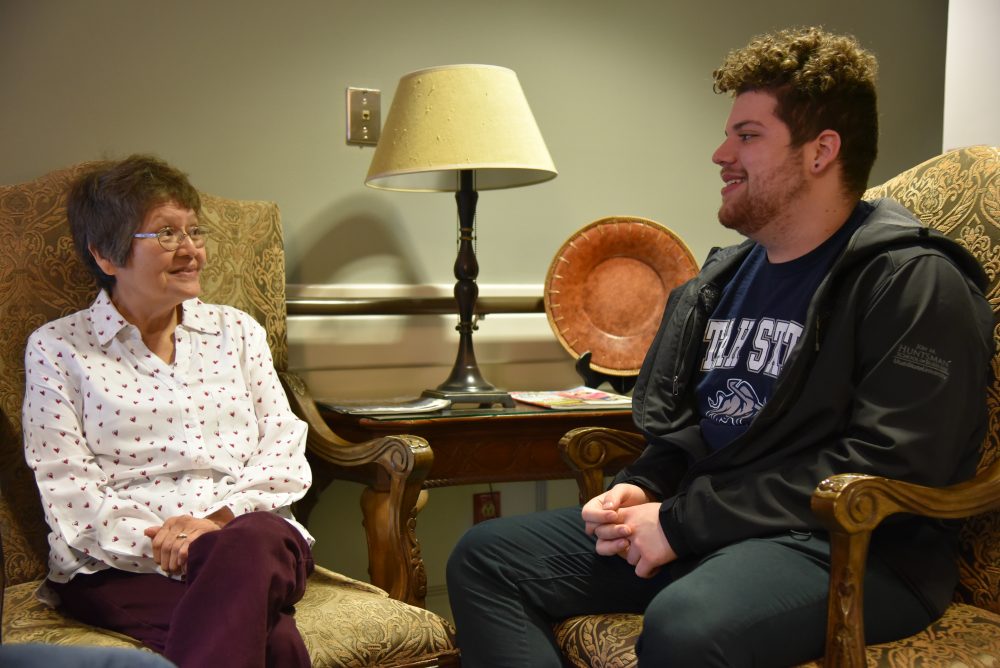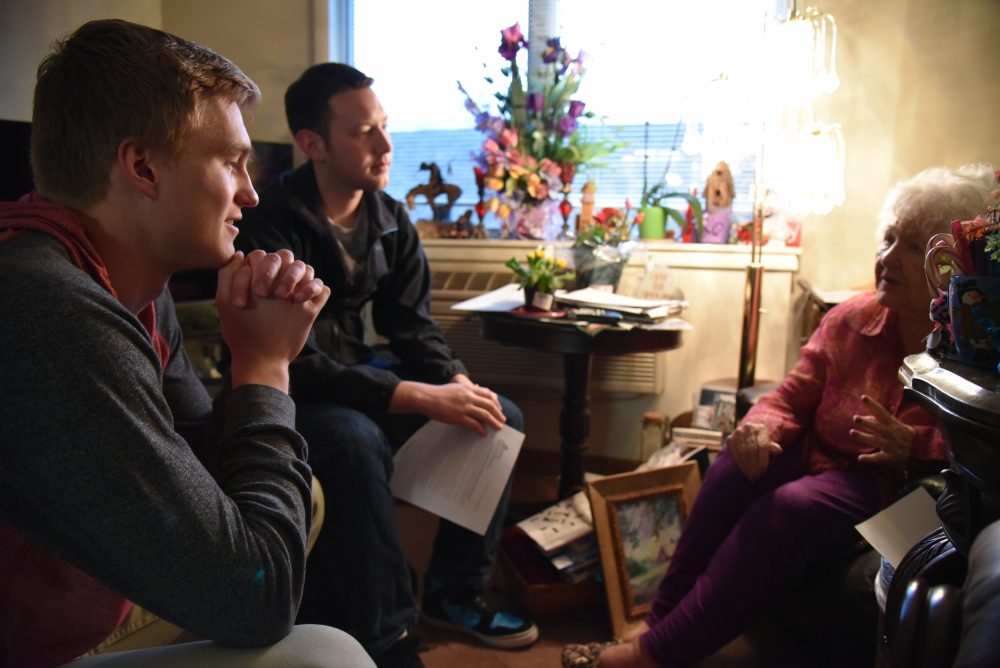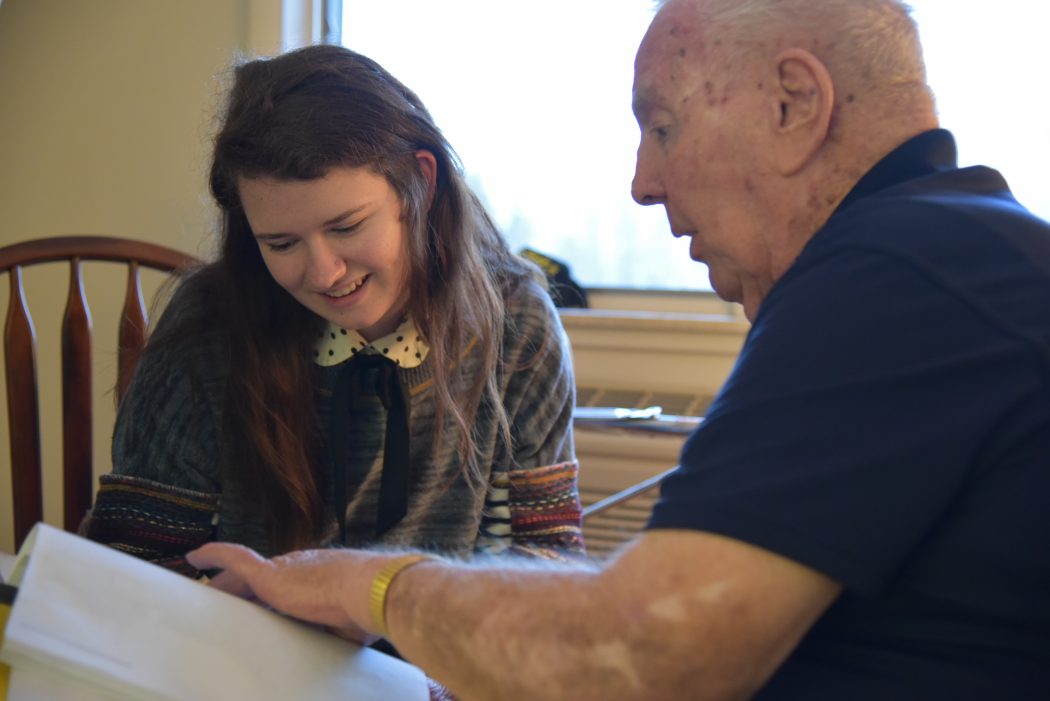USU Huntsman Scholars visit local retirement homes to preserve local stories
The Huntsman Scholars are taking a unique approach to service throughout Cache Valley in meaningful ways.
The scholars regularly spend time relaxing and visiting with the residents of the nursing homes throughout the valley. They also participate in reverse trick-or-treating around Halloween time where they pass out candy. But in their recent visits with residents, scholars have found that these residents have so many stories to share. This sparked the idea for capturing these stories on paper.
The scholars split up among the major nursing homes in Cache Valley, and each found two residents to spend an hour with to listen to their stories and gather necessary information required to transcribe those stories for future generations.
Shelley Jones studies folklore and suggested collecting the stories, transcribing them and submitting them to the Folklore Archives at the Merrill-Cazier Library, beyond simply giving the stories to the patrons’ families.
The process of this project has involved a lot of time and dedication, Jones said. A letter of explanation was submitted and each of the patrons were required to sign a release form for the pictures and stories to be submitted to the archives.

”It’s been really inspiring to see the scholars take ownership of this project,” said Sarah Hammon, a Huntsman Scholar. “We’ve seen a lot of dedication so far, because they know how important these stories are to the patrons and their families.”
Although this project has taken up the entire month, the scholars are hopeful and optimistic that they will be finished soon. For the Huntsman Scholars, this experience has been rewarding for several reasons.
“The most rewarding part for me was the conversations I was able to have. The resident I spoke to was in his 80s, but it was like talking to one of my professors. He grew up in the depression, served in the navy, become a doctor, traveled the world and did some really fascinating medical research,” said Cole Hammond.
Connections that the Scholars have made through this project have helped them develop feelings of gratitude for the service they have been able to give to these people that have lived such wonderful lives. Hammond said he discovered that time is infinite, which is something people don’t often realize.
“Really, it’s amazing what a person can experience over the course of a lifetime, and to even get a snapshot of that is a testament to what we can do with the time that we have,” Hammond said.
The elderly community of Cache Valley is incredible, said Eric Osterhout about his personal experiences with one special resident at Sunshine Terrace.
“We had the opportunity to meet a woman who wasn’t really with us mentally, and couldn’t carry on a conversation,” Osterhout said. “We determined that we would ask her questions, and even though she couldn’t really remember things from her earlier life, we discovered that there was a community of other residents that have known her for a long time who wanted to help us tell her story.”
At first Hammon and others were worried they wouldn’t be able to find enough patrons to accommodate 100 students — two per patron.
“The enthusiasm from the homes was overwhelming. We even had some additional patrons ask scholars to come back again to collect more stories,” Hammon said.
Throughout this project, the reactions from residents varied.

”The number one reaction from the residents, is that they think ‘my story doesn’t matter.’ They have so much apprehension to share because they don’t think that anyone wants to listen,” Osterhout said. “As we got through the whole program, they saw in our faces that we cared and were genuinely interested in their stories.That changed their whole perspective.”
Scholars have personally found how much this project has affected them, as well as the positive effect it has had on the residents.
“These residents have memories that matter to people. It’s not only important to us, but it’s important to them that their legacy lives on. The value for me was not just to tell their stories, but to realize the importance behind their stories, “ Osterhout said.
— kortni.marie.wells@aggiemail.usu.edu
@kortniwells

